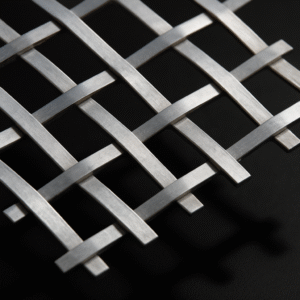




We value your privacy
We use cookies to enhance your browsing experience, serve personalised ads or content, and analyse our traffic. By clicking "Accept All", you consent to our use of cookies. Cookie Policy
We use cookies to help you navigate efficiently and perform certain functions. You will find detailed information about all cookies under each consent category below.
The cookies that are categorised as "Necessary" are stored on your browser as they are essential for enabling the basic functionalities of the site....
Necessary cookies are required to enable the basic features of this site, such as providing secure log-in or adjusting your consent preferences. These cookies do not store any personally identifiable data.
This cookie stores your consent preferences for cookies on this website.
Functional cookies help perform certain functionalities like sharing the content of the website on social media platforms, collecting feedback, and other third-party features.
No cookies to display.
Analytical cookies are used to understand how visitors interact with the website. These cookies help provide information on metrics such as the number of visitors, bounce rate, traffic source, etc.
No cookies to display.
Performance cookies are used to understand and analyse the key performance indexes of the website which helps in delivering a better user experience for the visitors.
This cookie is used by Google Analytics and distinguishes unique visitors on the website.
This cookie is used by Google Analytics to track visitor activities on the website.
This cookie is used by Google Analytics and stores a unique value for each page visited and tracks page views.
This cookie is used by Google Analytics and tracks a visitors session.
Advertisement cookies are used to provide visitors with customised advertisements based on the pages you visited previously and to analyse the effectiveness of the ad campaigns.
This cookie is used by Doubleclick and contains information about a visitor's past visit to other websites that have advertisements from Doubleclick.
This cookie is used by Google AdSense for experimenting with efficiency across websites that use Google Ads.
This cookie is used by DoubleClick to check if a visitor's browser supports cookies.




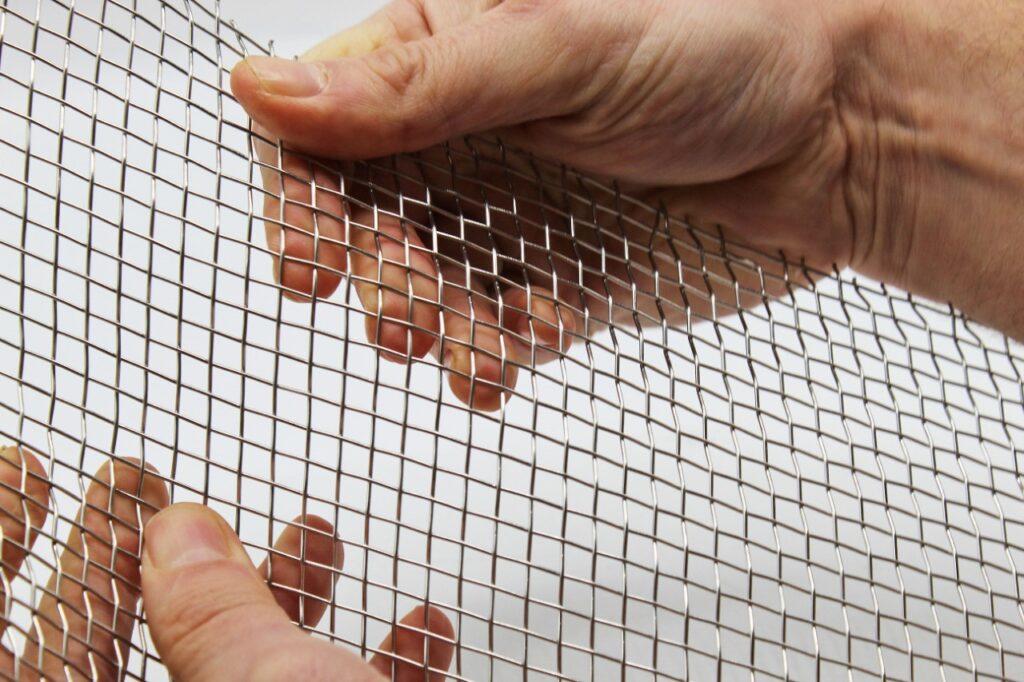
We commonly get asked to explain the difference between the mesh options that we offer. We also are asked to define the terms, such as woven mesh, wire cloth, wire mesh etc. More commonly in recent times we are asked about hardware cloth. The aim of this article is to answer any questions that you may have.
Let’s get into it…
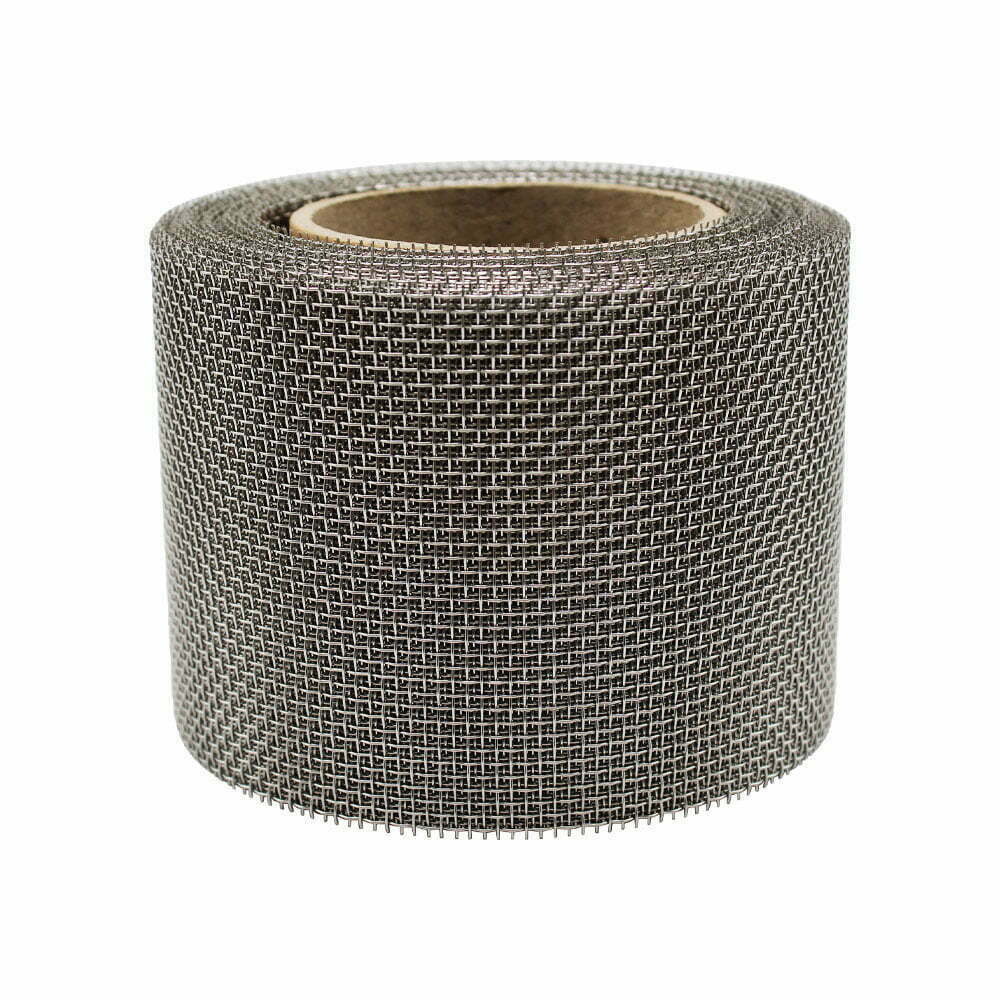
Hardware cloth is a type of mesh material made from metal wire that is used for a variety of applications, including construction, fencing, and home repair. It typically consists of a series of interwoven metal wires that form a grid pattern. The wire used in hardware cloth is often made from galvanised steel, which provides a measure of rust resistance and durability. Hardware cloth is used for a wide range of purposes, including building screens, reinforcement for concrete, and as a barrier for animal protection. It can also be used for filtering, protection and support in industrial settings.
Which hardware cloth you should choose will depend on the specific application or project you are using it for. Here are a few things to consider when choosing the woven mesh for you:
• Mesh size: The mesh size refers to the size of the openings in the wire mesh. Smaller mesh sizes are better for keeping small animals out, while larger mesh sizes are better for larger animals or debris.
• Gauge: The gauge refers to the thickness of the wire. A lower gauge number means a thicker wire, which will be stronger and more durable.
• Material: Woven wire mesh is available in several materials including galvanised steel, stainless steel and aluminium. Galvanised steel is the most common and affordable, while stainless steel is more corrosion resistant and aluminium is lightweight.
• Rust resistance: If the wire cloth will be exposed to the elements, you may want to choose a material that is rust-resistant.
Yes, hardware cloth can be used to keep rats out. Hardware cloth with small enough mesh can prevent rats from entering an area because they are unable to squeeze through the openings. The wire mesh should have openings that are 1/4 inch or smaller to effectively keep rats out. When using hardware cloth to exclude rats, it is important to make sure that all potential entry points are sealed and covered with the mesh, including gaps around pipes and wires. The mesh should be securely attached to the surrounding surface to prevent rats from gnawing their way through it. Additionally, it is a good idea to check the mesh regularly for signs of damage or wear and to repair or replace it as needed.
We offer stainless steel hardware cloth with 1mm and 2mm holes for this very purpose. Our rodent mesh is well known to be long lasting and great value for money.
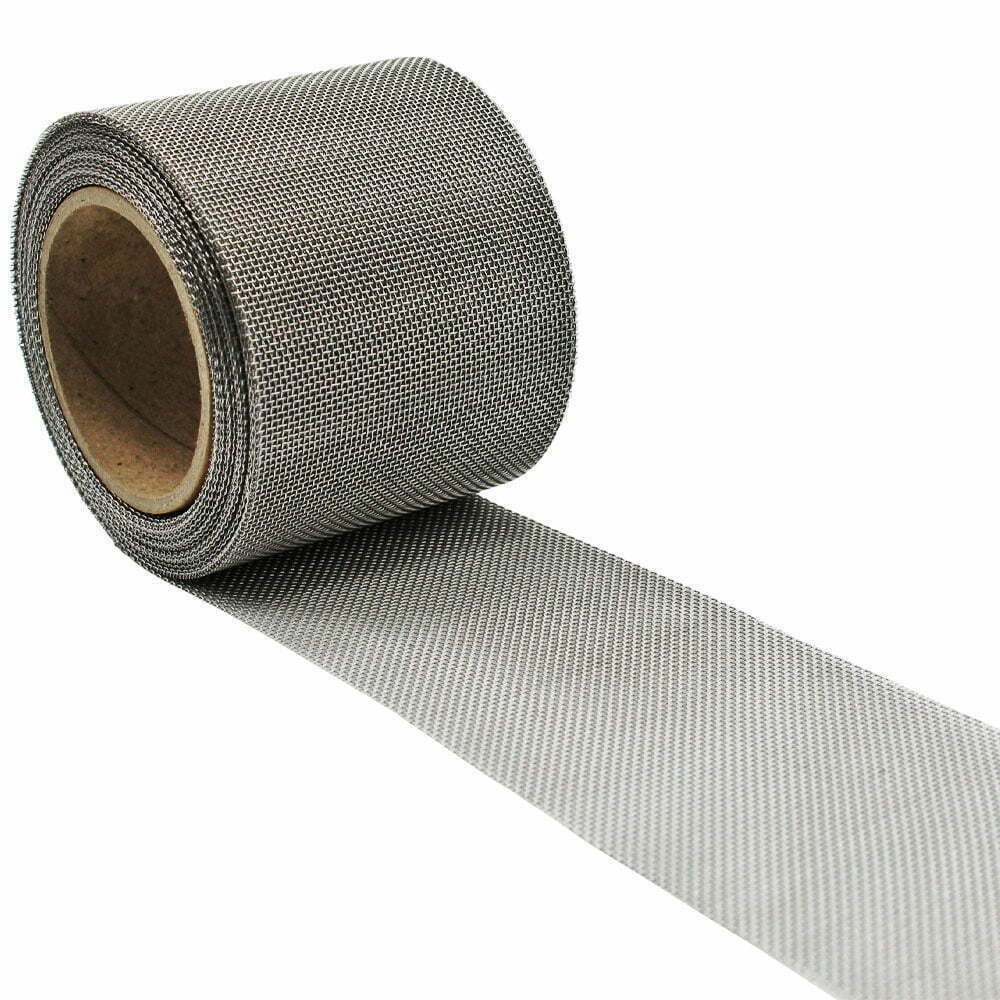
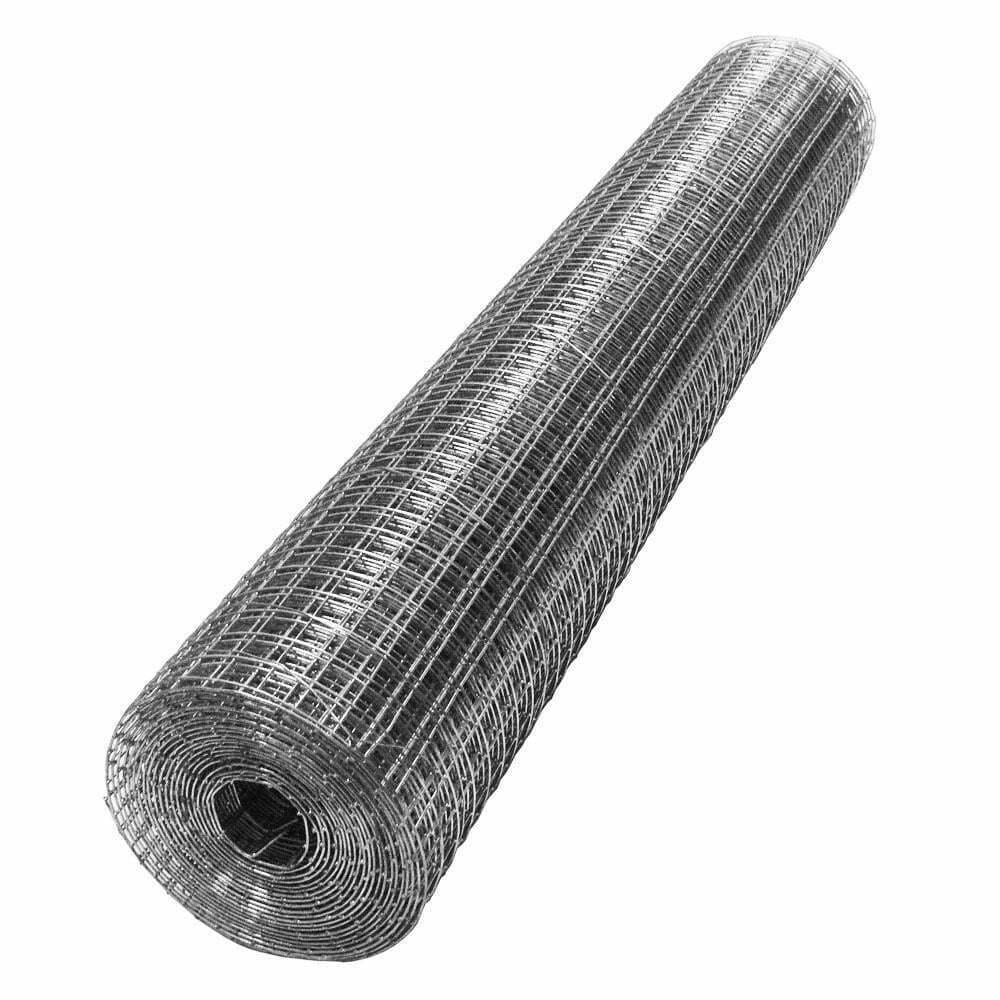
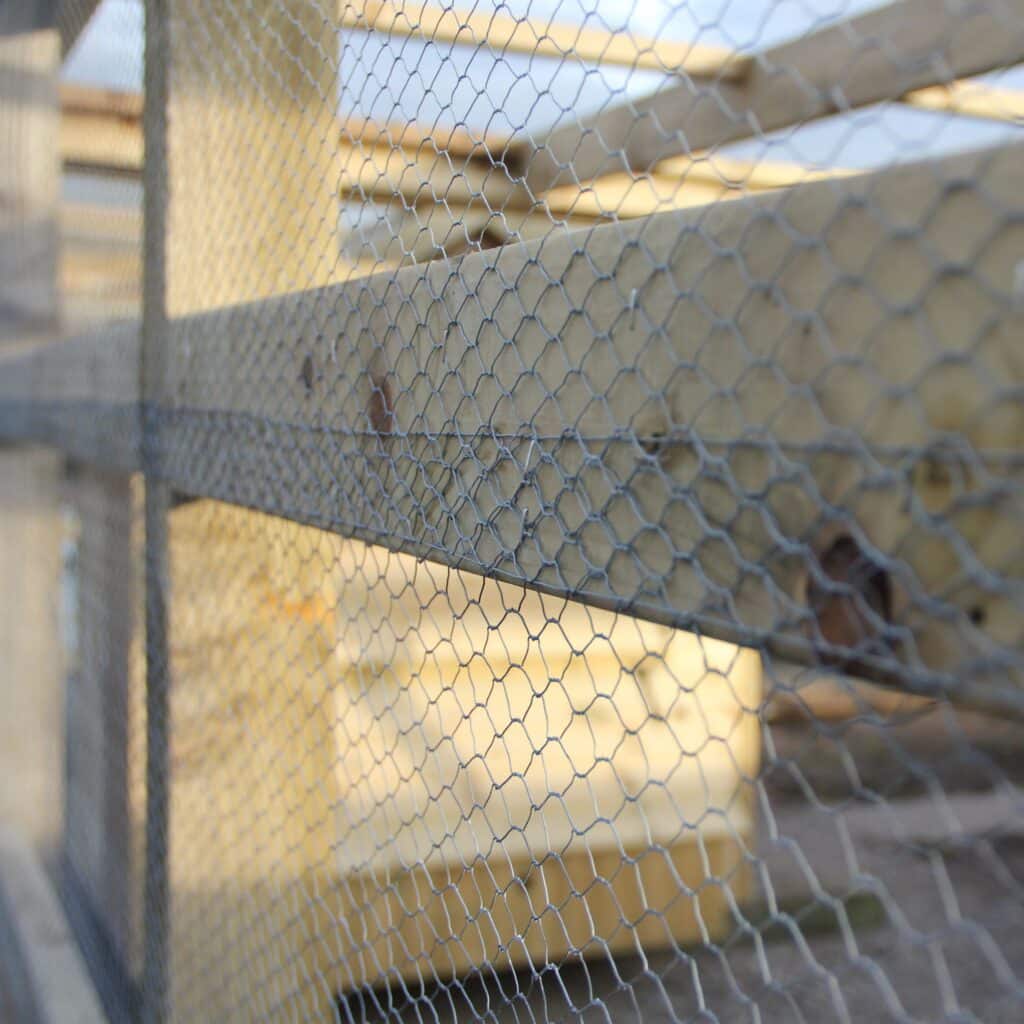
When choosing hardware cloth for a chicken coop, it is important to consider the size of the mesh and the gauge of the wire. Here are some guidelines to help you choose the right hardware cloth:
Mesh size: The mesh size should be small enough to keep chickens in and predators out. A mesh size of 1/2 inch or smaller is typically recommended.
Gauge of wire: The gauge of the wire should be sturdy enough to withstand the weight of chickens and potential predators. A wire gauge of 19 or heavier is recommended.
Rust resistance: Chickens can be hard on their coops, so it is important to choose hardware cloth that is rust resistant. Galvanised hardware cloth is a good option, as it is resistant to rust and corrosion.
Durability: The hardware cloth should be made from sturdy, high-quality materials to ensure that it lasts a long time.
It’s also a good idea to choose hardware cloth that is easy to cut and manipulate, so that you can easily customise it to fit your coop’s specific needs. With these considerations in mind, you should be able to choose hardware cloth that is perfect for your chicken coop.
The lifespan of wire mesh will depend on several factors, including the material it is made from, the gauge of the wire, and the environment it is exposed to.
Galvanised steel hardware cloth is one of the most common types of mesh, and it is coated with a layer of zinc to help prevent rust and corrosion. If it is used in a protected area, it can last for several years or even a decade or more. However, if it is used in an area with high humidity or exposure to saltwater, it may not last as long as it would in a dryer environment.
Stainless steel is more corrosion resistant than galvanised steel and can last much longer, up to 30 years or more, especially if it is used in an area where it is exposed to harsh weather conditions.
Aluminium mesh is another option, it is lightweight and resistant to rust and corrosion, and can last for a long time, up to 20-25 years in a marine environment.
Ultimately, the lifespan of your mesh will depend on the specific conditions it is exposed to, so it’s always good to check in with the manufacturer before purchase if you require any advice.
Stretching woven mesh can be done in several ways, depending on the specific application and the tools you have available. Here are a few methods:
Regardless of the method you choose, make sure to wear gloves and safety glasses to protect your hands and eyes from sharp edges. Also make sure to stretch the mesh evenly so that it maintains its shape and doesn’t become distorted.
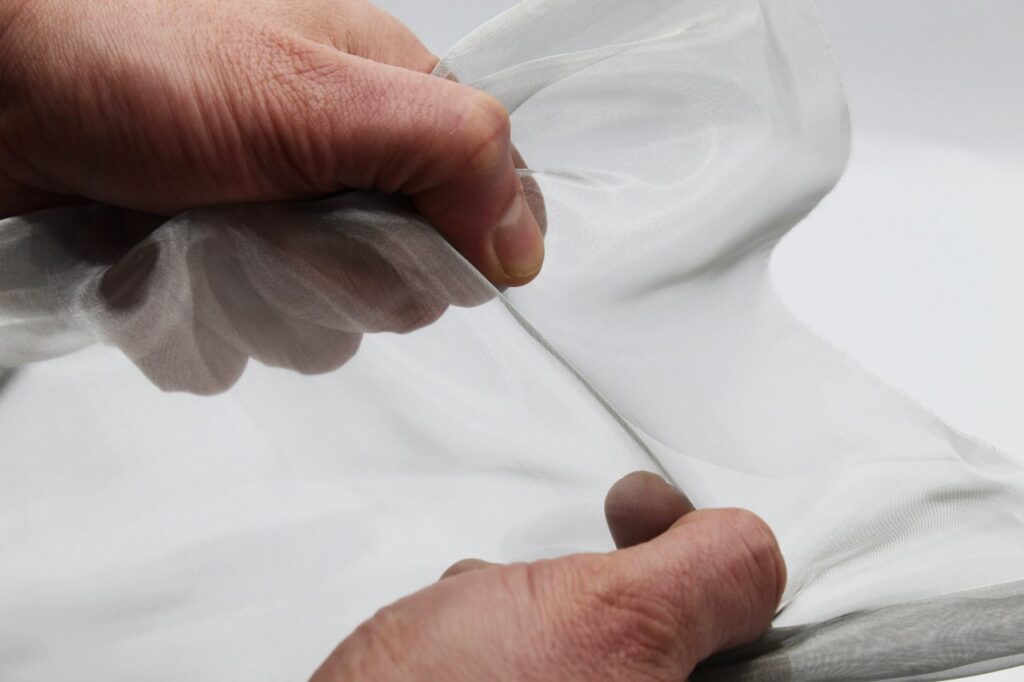
Cleaning hardware cloth can be done in several ways, depending on the type of debris or buildup on the mesh. Here are a few methods:
For light debris and dust, use a soft-bristled brush or a dry cloth to sweep or wipe the mesh clean.
For dirt and grime, use a solution of mild detergent and water to scrub the mesh with a stiff-bristled brush or a cloth. Rinse the mesh thoroughly with a garden hose or a pressure washer to remove any remaining soap residue.
For rust or corrosion, use a wire brush or a stainless steel wool to scrub the affected areas. After cleaning, rinse the mesh thoroughly and apply a rust inhibitor or a coat of paint to protect the mesh from further rusting.
For heavy grease or oil buildup, use a degreaser or a solution of hot water and a heavy-duty cleaner to scrub the mesh. Rinse the mesh thoroughly with a garden hose or a pressure washer to remove any remaining cleaner residue.
It’s important to note that when cleaning hardware cloth, be sure to wear gloves and safety glasses to protect your hands and eyes from sharp edges. And also always check the manufacturer’s instructions regarding the care and cleaning of the specific material the hardware cloth is made of.
Yes, hardware cloth can be recycled. It is made of metal, usually steel, which is a recyclable material. The process of recycling hardware cloth typically involves melting the metal down and forming it into new products.
However, the process of recycling hardware cloth can be challenging because it is often coated with zinc (galvanisation), which can be difficult to remove. Some recycling facilities may not accept hardware cloth because of this. It is always a good idea to check with your local recycling facility to see if they accept hardware cloth and if there are any special requirements for its disposal.
In addition to recycling, hardware cloth can also be repurposed for other uses, such as making garden trellises or using it as a material for DIY projects. Repurposing the cloth is a sustainable way to extend its lifespan and reduce waste.
As always, thank you for checking out our blog. We hope that this helps you with your project. We try to launch a couple of new guides every week. Eventually we will have covered everything there is to cover about mesh.
Our goal for our blogs and help guides is to answer as many questions as possible to help to explain the possibilities of mesh to our customers. Contact our team today if you have any questions at all. We are always really keen to help in any way that we can.
The largest range of wire mesh, chicken wire, wire fencing, woven wire mesh and perforated metal products in Europe, delivered direct from our Warrington warehouse.




Website by: Beech Web Services | Terms and Conditions | Cookie Policy | Privacy Policy | Website Terms and Conditions